+ Filter
 Loading...
Loading...

WNT4
 Loading...
Loading...Anti-WNT4 Products
- Mouse Anti-WNT4 Recombinant Antibody (VS3-CJ1055) (VS3-CJ1055)
-
- Species Reactivity: Human, Mouse
- Type: Mouse IgG1, κ
- Application: WB
- Mouse Anti-WNT4 Recombinant Antibody (clone 4G1) (VS3-XY1598)
-
- Species Reactivity: Human
- Type: Mouse IgG1
- Application: WB, IP, IF
- Anti-WNT4 Immunohistochemistry Kit (VS-0525-XY7931)
-
- Species Reactivity: Human
- Target: WNT4
- Application: IHC
- Anti-Mouse WNT4 Immunohistochemistry Kit (VS-0525-XY7932)
-
- Species Reactivity: Human, Mouse
- Target: WNT4
- Application: IHC
- Anti-Human WNT4 Immunohistochemistry Kit (VS-0525-XY7933)
-
- Species Reactivity: Human, Porcine
- Target: WNT4
- Application: IHC
-
- Species Reactivity: Human
- Type: Rabbit IgG
- Application: WB, IF, ICC
View More Products
Can't find the products you're looking for? Try to filter in the left sidebar.Filter By Tag
More Infomation
Our customer service representatives are available 24 hours a day, from Monday to Sunday. Contact Us
For Research Use Only. Not For Clinical Use.
Background
The WNT gene family consists of structurally related genes which encode secreted signaling proteins. These proteins have been implicated in oncogenesis and in several developmental processes, including regulation of cell fate and patterning during embryogenesis. This gene is a member of the WNT gene family, and is the first signaling molecule shown to influence the sex-determination cascade. It encodes a protein which shows 98% amino acid identity to the Wnt4 protein of mouse and rat. This gene and a nuclear receptor known to antagonize the testis-determining factor play a concerted role in both the control of female development and the prevention of testes formation. This gene and another two family members, WNT2 and WNT7B, may be associated with abnormal proliferation in breast tissue. Mutations in this gene can result in Rokitansky-Kuster-Hauser syndrome and in SERKAL syndrome.
Protein class
Disease related genes, Human disease related genes
Predicted location
Intracellular, Membrane, Secreted (different isoforms)
Single cell type specificity
Cell type enhanced (Endometrial stromal cells, Basal respiratory cells, Enteroendocrine cells, Breast myoepithelial cells, Breast glandular cells)
Immune cell specificity
Not detected in immune cells
Cell line specificity
Cell line enhanced (HaCaT, SCLC-21H, SK-BR-3, T-47d)
Interaction
Interacts with PORCN (By similarity). Interacts with PKD1 (PubMed:27214281).
Molecular function
Developmental protein
More Types Infomation


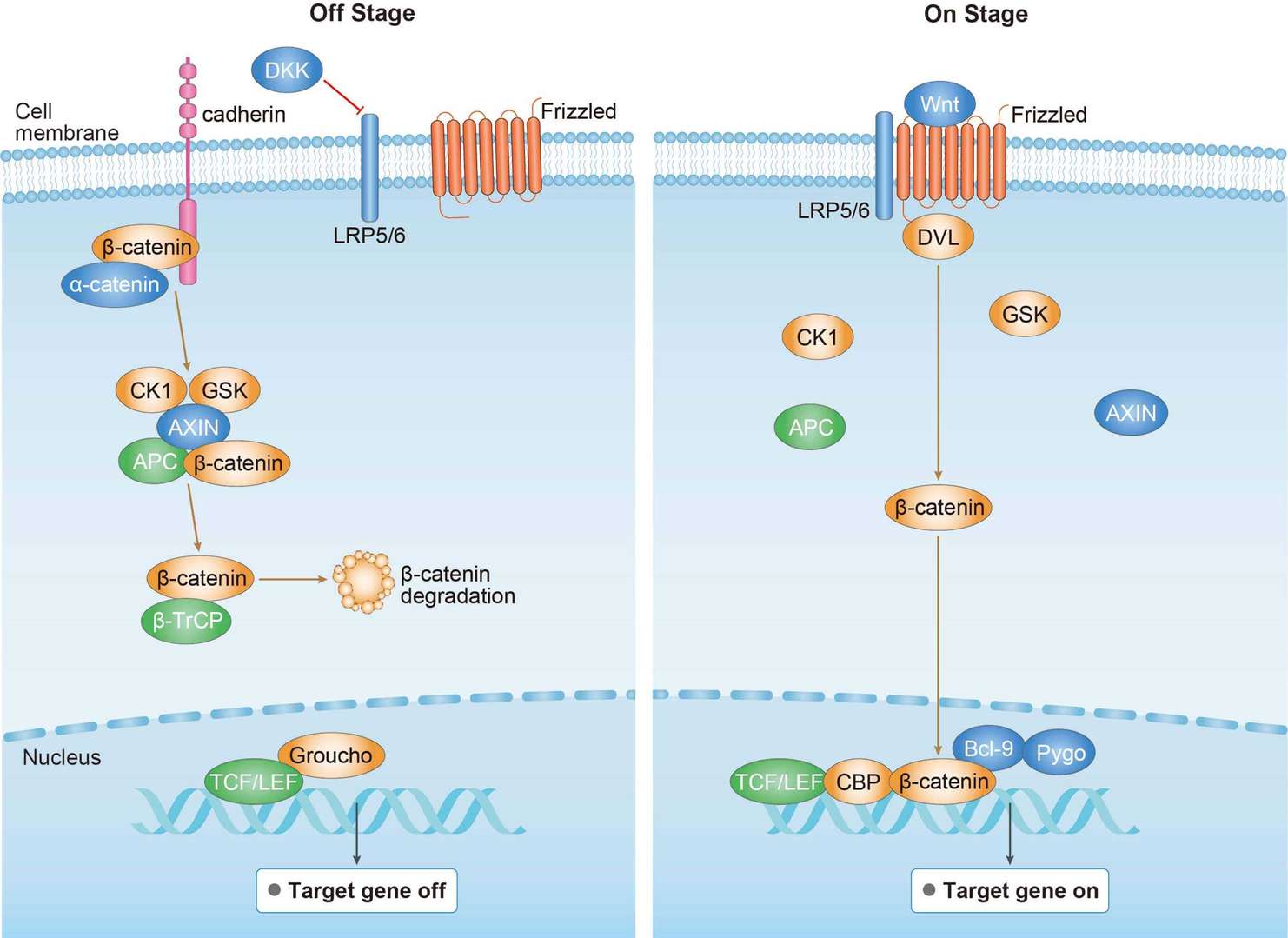 Canonical Wnt Signaling Pathway
Canonical Wnt Signaling Pathway
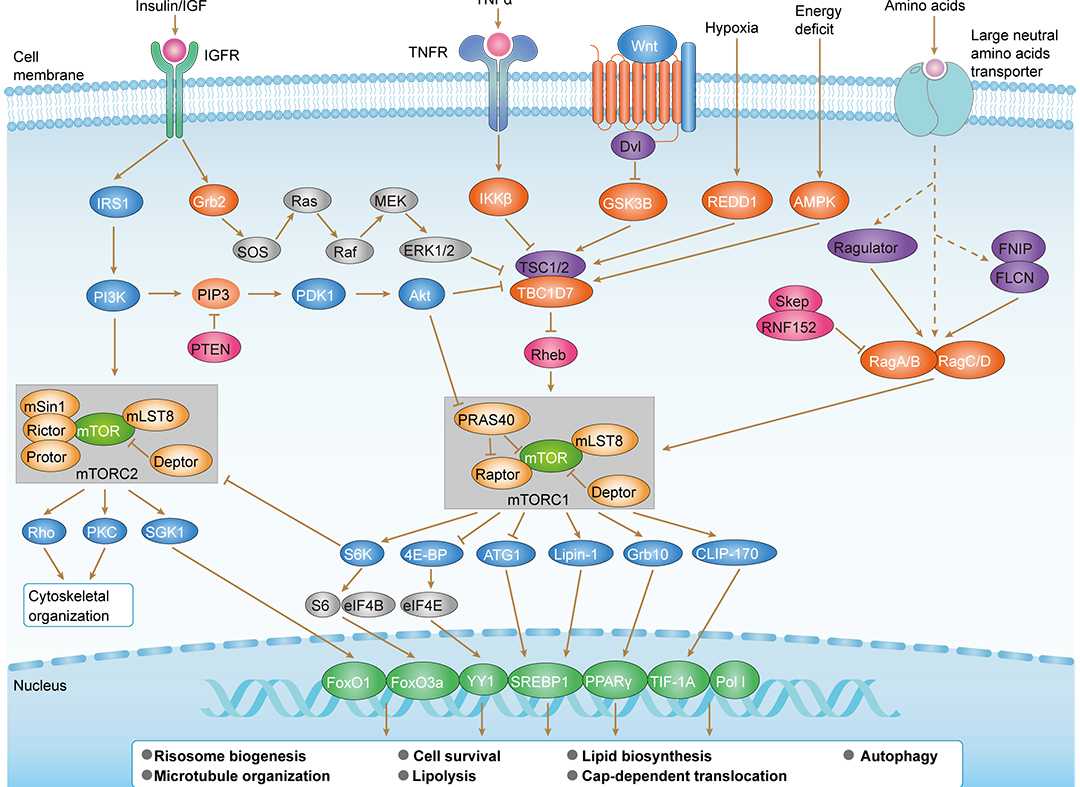 mTOR Signaling Pathway
mTOR Signaling Pathway
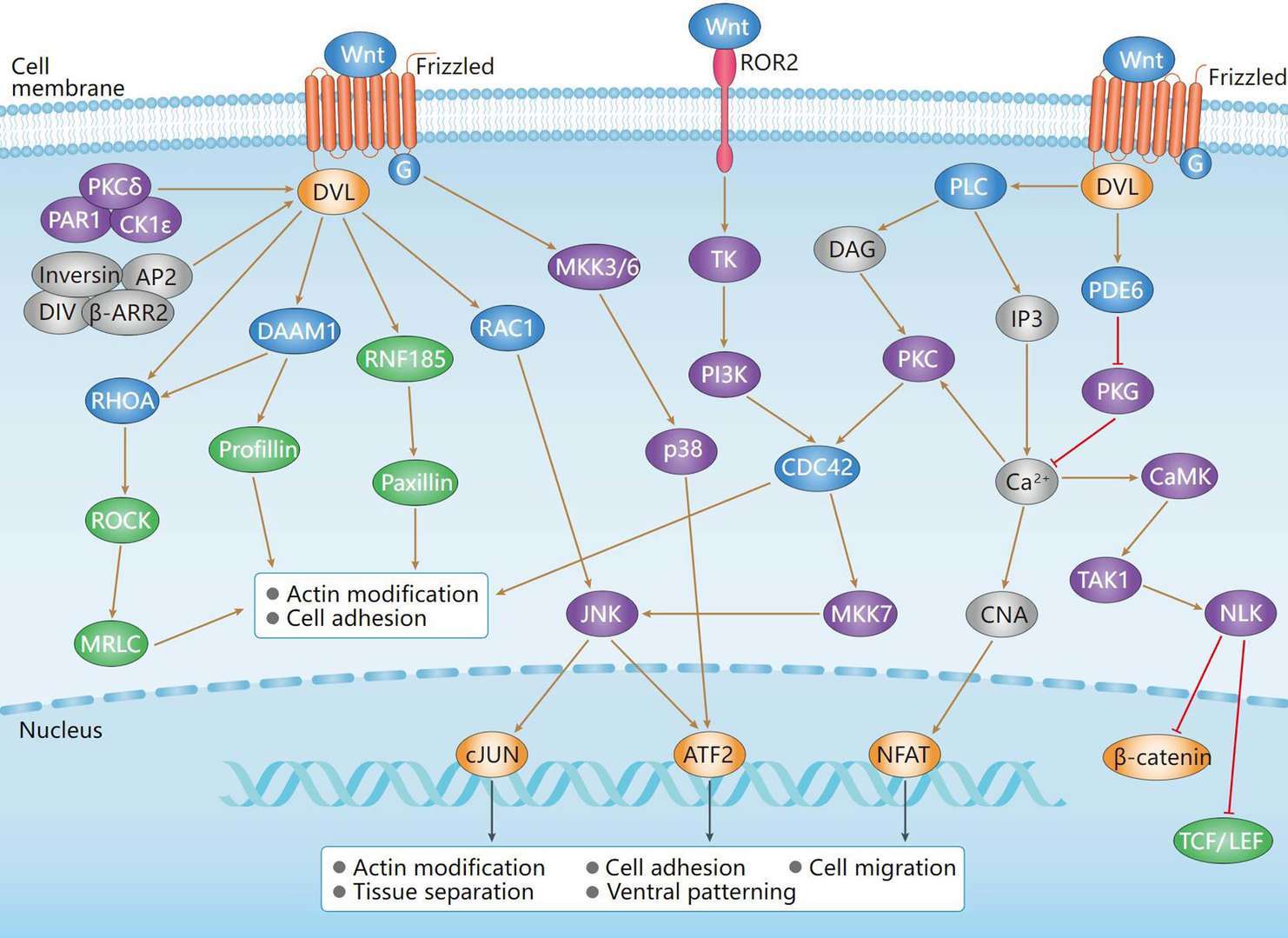 Non-Canonical Wnt Signaling Pathway
Non-Canonical Wnt Signaling Pathway
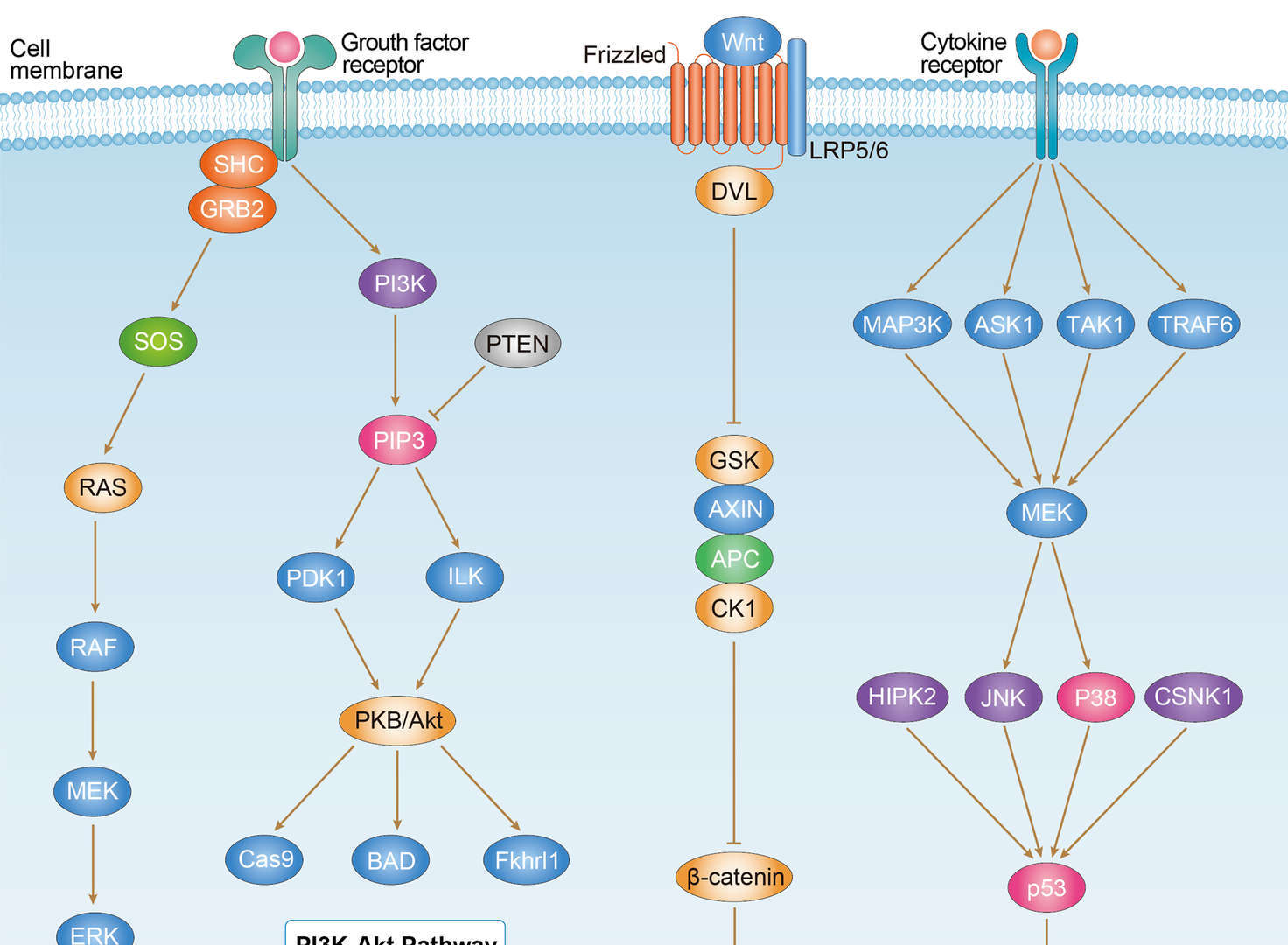 Endometrial Cancer
Endometrial Cancer
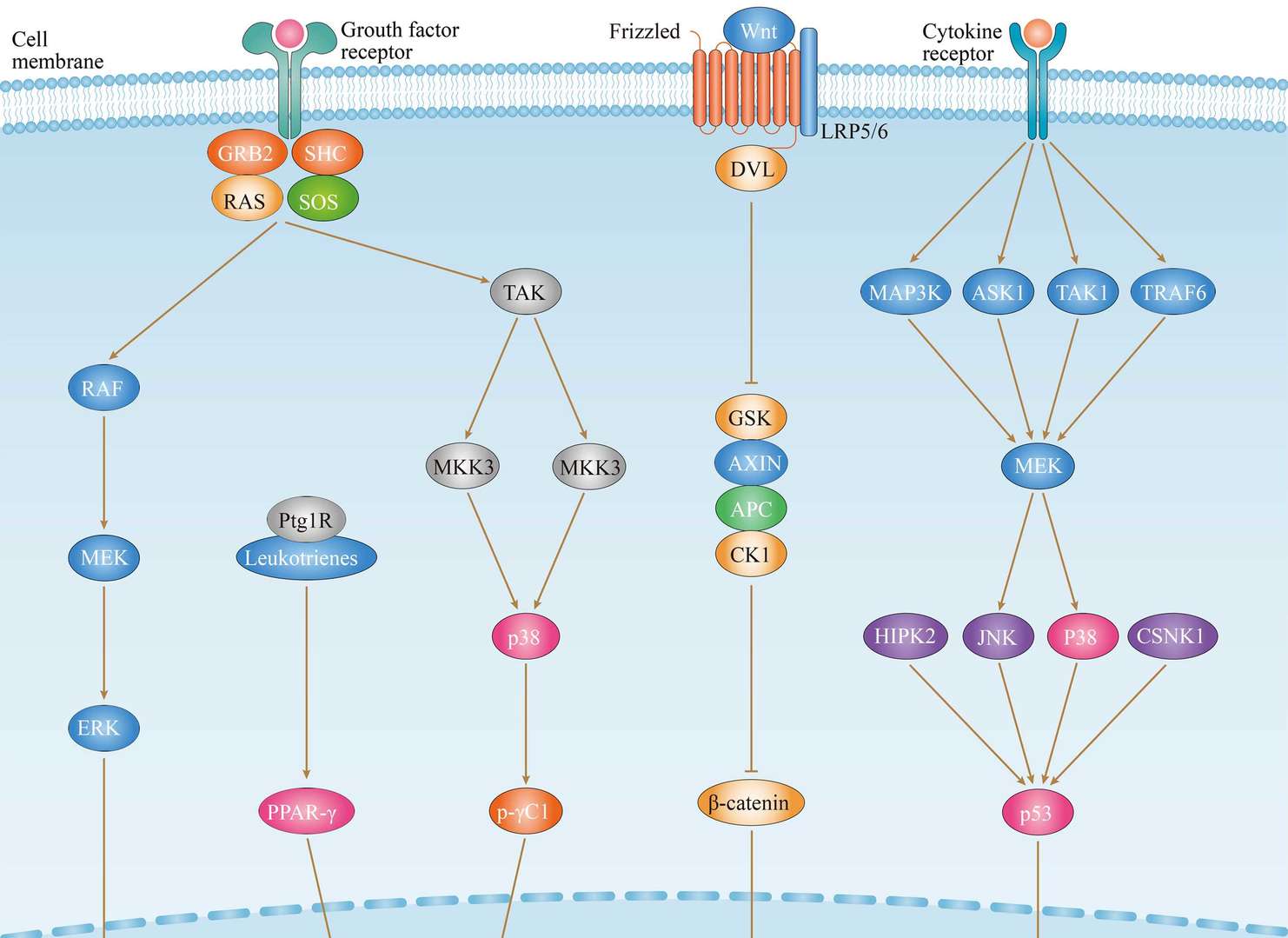 Throid Cancer
Throid Cancer
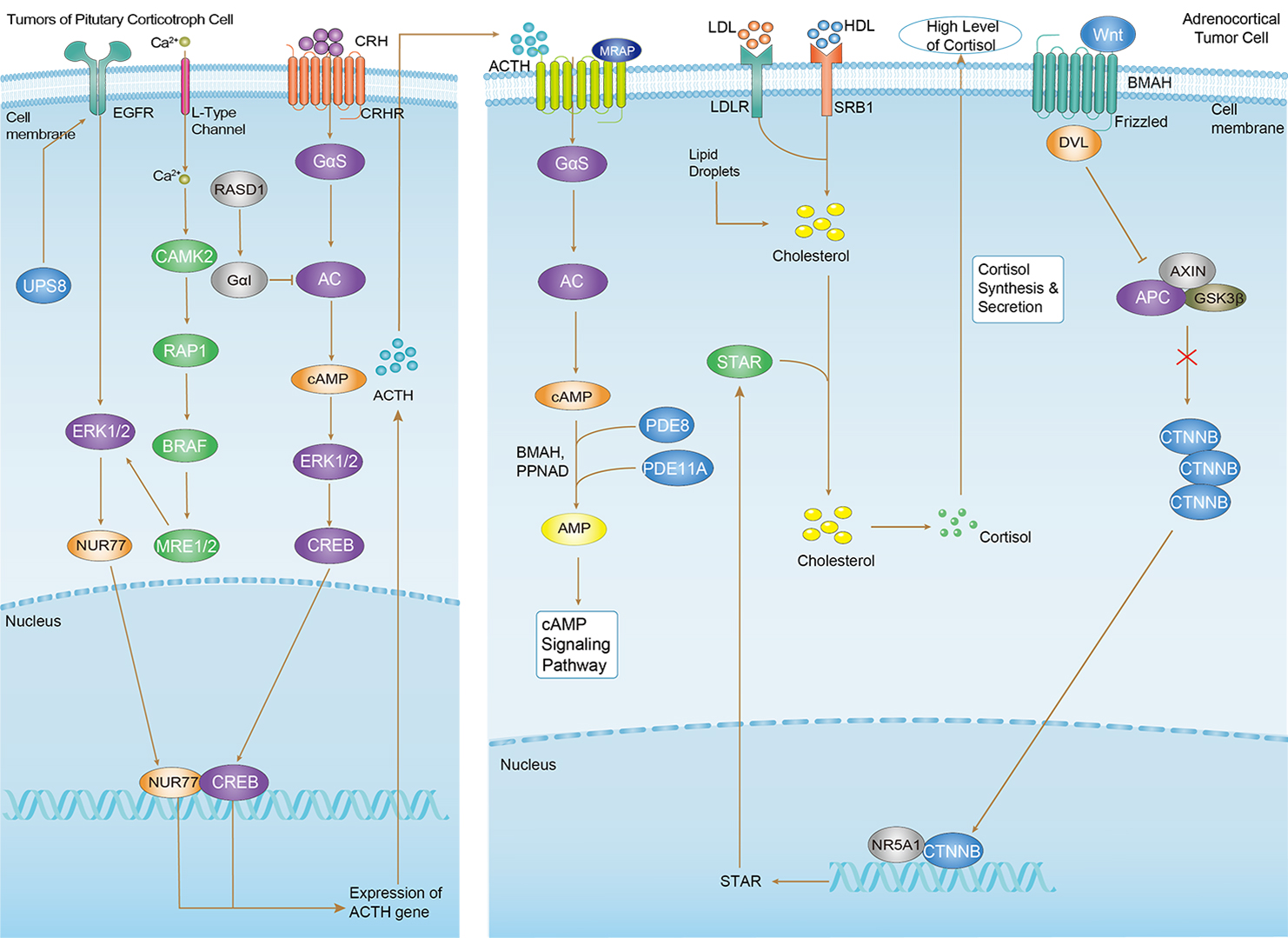 Cushing Syndrome
Cushing Syndrome

